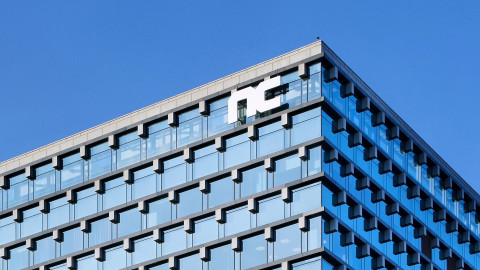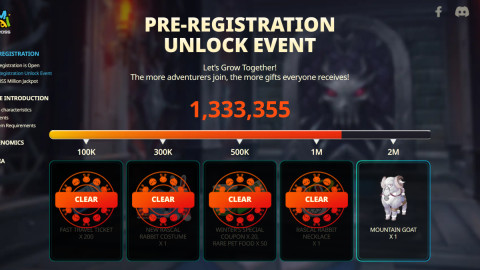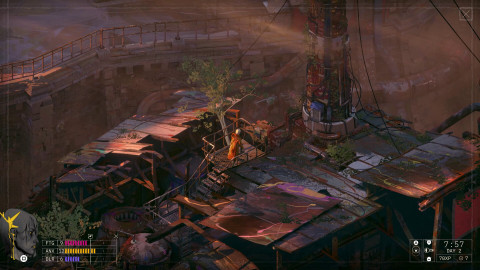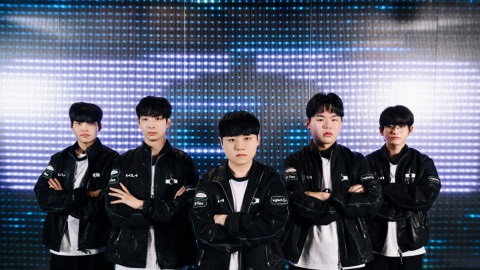
A Fortnite professional player for Team 33, Mony is only 18 years old and has already earned over $41,000 in winnings from his successful career. But long before Mony ever dropped from his first battle bus in 2017, he was already beating the odds. As a child refugee of the Syria Civil War, Mony’s is a story of violence and survival, fear and courage; a story of airstrikes and bomb rains as everyday events and living under siege, hoping to one day escape the gehenna of war.
* * *
Chapter I: War
Born in Syria in 2003, Mony lived there with his family for the first 12 years of his life. Until he was nine, he had access to the internet too, which is where he made his first gaming discoveries — mostly Facebook games due to computing limitations.
“We were in Syria, so we didn't have computers like that,” Mony shared with me. “So I would play some games on Facebook, it was just some basic games I would play with friends. And I would watch Minecraft videos, and later on Call of Duty videos, but I couldn’t play those games, because we didn’t have those games back in Syria. So that is what I did for the first nine years of my life.”
In 2011, the Syrian Civil War broke out, pitting the Syrian government against numerous rebel factions. In 2012, the internet in Mony’s government-controlled territory was cut off, alongside access to vital resources like power and even water.
“I lived there for three more years, with no internet,” Mony reminisced. “Our water was cut out too. We would get water once a month, or once every two weeks. So we had these big tanks of water, and we would fill them up whenever we could, and try to conserve because we don’t want to run out of water until the water comes back.”
He continued, “Another thing that happened is, we had electricity for only two hours a day. So we didn’t have any video games, or anything like that, during the war.”
Video games and bad computers quickly became the least of Mony’s concerns in those days, as his family bunkered down in their apartment building amidst one of the most devastating civil conflicts in modern history. The horrors of the bloodshed soon became things Mony would experience first-hand.
“I was sitting at my home, waiting for school and the bus to come, and out of nowhere I heard an explosion [hit our building] and some of our walls were destroyed, all the glass was destroyed suddenly,” Mony said. “It was an airstrike that was dropped on our building. In Syria, we don’t really have houses, it’s more big apartments, like 4-5 story apartments everywhere, since it’s a smaller country. So we lived on the third floor, not the last one, the last floor got the most damage. Our apartment was destroyed, but thankfully no one was injured.”
“We lived in an area that belonged to the government, my guess is that it was the rebels [who bombed us]. These airstrikes were random, they weren’t really targeting our building, it was just random,” Mony elaborated on the chaos of war, before sharing another story — one of a bullet to the neck and a choice nobody would ever want to make.
“In Syria, around that same time we got airstruck, there would be a sniper that would overlook our street,” Mony recounted. “It was a very long road, a couple miles, and it was just a straightaway. So this sniper had a very big range. So what we would do is, we would run across the street and he would never hit us. But this person I knew, this friend, he was sick of it all. He was like ‘I am just gonna walk, I don’t care anymore.’
“He starts walking down the street for like a week, and nothing happened to him, so he was like, ‘Look at me, he isn’t gonna hit me’. Then one day he was walking and he was shot in the neck. They took him to the hospital and they told him, you either live fully paralyzed or you die right here. So he talked to his family and they let him rest in peace.”
* * *
Chapter II: Escape
After three years of living under the strain of war and conflict, Mony’s family fled to Turkey as refugees, joining many other Syrian refugees who fled there during the war. It was only in Turkey that a now 13-year-old Mony could reconnect with the experiences of his once peaceful childhood.
“When I made it to Turkey, there was internet and electricity there,” Mony said. “But I didn’t have a good computer, I played on a laptop. I could only run Minecraft on it. I played a cracked version of Minecraft, because we couldn’t buy the full version in Turkey. I would watch videos of Minecraft too, it seemed like so much fun to have the full game and be able to play on big servers like high pixel, but I couldn’t with the cracked version.”
Life in Turkey was a significant improvement to war-torn Syria but there was instability there too, caused by a wave of protests, civil unrest, and anti-government dissent. Mony’s father initially found employment at a University but after it shut down, he had to seek work teaching basic computer use classes, despite his background in civil engineering. It was his father’s plethora of skills that supported the family in these times of limbo-esque safety.
After two years in Turkey, Mony’s family secured visas to the United States — the end of a lengthy, seven-year-long process that started even before the onset of the Syrian Civil War. The family’s better life finally began. His father found work in civil engineering — his specialty field — and his mother pursued her career as a pharmacist. Through hard work and perseverance, the family could afford housing, good schooling, and food on the table, Mony remembers with admiration of his parents.
He could even afford the thing he had longed for since his childhood days: a full version of Minecraft and access to the servers he’d always wanted to play on. Beyond just entertainment, gaming also helped Mony overcome the culture shock of moving half the world away.
“A lot of people from Syria move to Turkey, so that wasn’t really a big change for me, because I knew a lot of Syrian people there and had Syrian friends,” Mony said. “But moving to the US, that was much more challenging because I had different traditions, different everything, my lifestyle was different, and I needed to learn English."
“I had been watching Minecraft people, and they would speak English. So I had a basic understanding, it was just learning the grammar and everything from there. And then in two months, I was able to learn Еnglish, by myself, and then I got into school and was enrolled in honors classes and graduated high school last June with a 3.5 GPA.”
But for all the honors and academic excellence, Mony still lived in a country that looked down on foreigners, especially those of his origin, with ridicule.
“The first year was very hard for me socially,” Mony explained. “It was when the elections were happening, and Donald Trump banned middle eastern people, like, right after we came. So people would talk about it and make fun of me for it, people would call me Moniere Bin Laden and stuff like that. It was just terrible. It wasn’t bullying, but it was like people were making fun of me for it.”
“In our traditions, I go by Moniere, but I have Muhammed in my name,” Mony explained regarding the Bin Laden “humor”. “So people would be like, ‘Oh, all Muslims have Muhammed in their name’ so it was just part of their jokes. Mainly it was my accent that would attract these jokes. I used to sound like... If you have seen videos of Indian tech support, I used to sound like that.”
Due to his struggle for acceptance in an increasingly hostile and xenophobic American culture, Mony turned to gaming as his “second world.” While he was able to find plenty of friends after his sophomore year, the first little while in America was arduous. Through online gaming, he was lucky enough to find acceptance and even some of his closest friends, people that he still hangs out with today.
* * *
Chapter III: New life
Mony took his first step into competitive gaming nearly a year after arriving in America.
“When I first came to the US four years ago, I didn’t have a really good computer, so I played Minecraft for a year,” he explained. “And then after a year, I was pretty bored of it, and I saw Fortnite came out, and it had this building mechanic that no other game had, and it's a battle royale and it has an aiming mechanic, so it's basically like Minecraft with guns, if you think about it.”
Once enamored with the game, Mony turned to content creation but after the timid start any YouTuber faces, he got to do what so very few people get the chance to — frag a legend.
“Two months after I started playing the game, I got into a game with Ninja and I killed him in the game, and I made a video of it. I had been making videos for a while then, and I would get 100 views, 50 views. That video popped off, it got 3,000 views. It made me fall in love with the game.”
It was around this time that Mony started grinding out Fortnite matches in earnest, trying to become one of the best in the world. For a year, he persisted through rigorous practice, trying to convince his parents he could make a living out of it one day. Skeptical at the beginning, his father and mother soon accepted and started supporting their son’s aspirations after the start of the Fortnite World Cup and Mony’s first successes.
“The major point in my career was probably the World Cup,” Mony told me. “I was 2 points off qualifying for New York, it was devastating at the time but also very motivating. Then I placed in a bunch of grand finals for different events, which has added up to $41,000 so far.”
Mony played for a couple of smaller Fortnite teams like PureHQ and ExtraGaming before signing with Team 33 in August of 2021 — one of the current best teams in NA West at the time of this interview. And then, on top of it all, comes Mony’s persistent dedication to academia, something that would’ve likely never been possible back in his home Syria.
“Esports is an opportunity that not everyone gets, so I just want to take it to the fullest potential. But I am not only doing esports, I am also going to college, I am an engineering major at a community college near my house. I am doing that, while I am doing Fortnite as a job."
He continued, “given that I came from a country where there is not much opportunity, you either go to college or you are a labor worker. So, it made me take it to the full potential and work as hard as I can to be the best at everything. I am a very competitive person, so whatever I am doing I am trying to be the best at it.
Today, the challenges his younger self faced are a motivator for Mony.
“I still have family in Syria, they tell me about [the war], and every time I hear about it I get these memories. When we were in Syria, I was pretty young so I was able to get over it more quickly than other people who would have lived there for 16 or 17 years. But it has become a motivation to become the best I can and have a better future than something that holds me back.”
-

Aaron is an esports reporter with a background in media, technology, and communication education.
Sort by:
Comments :0





